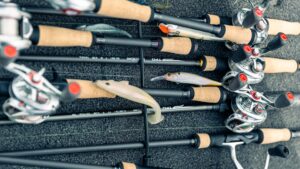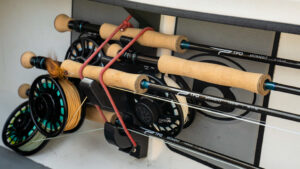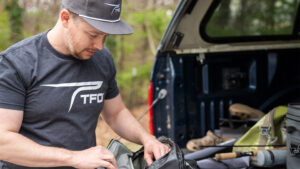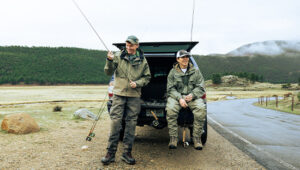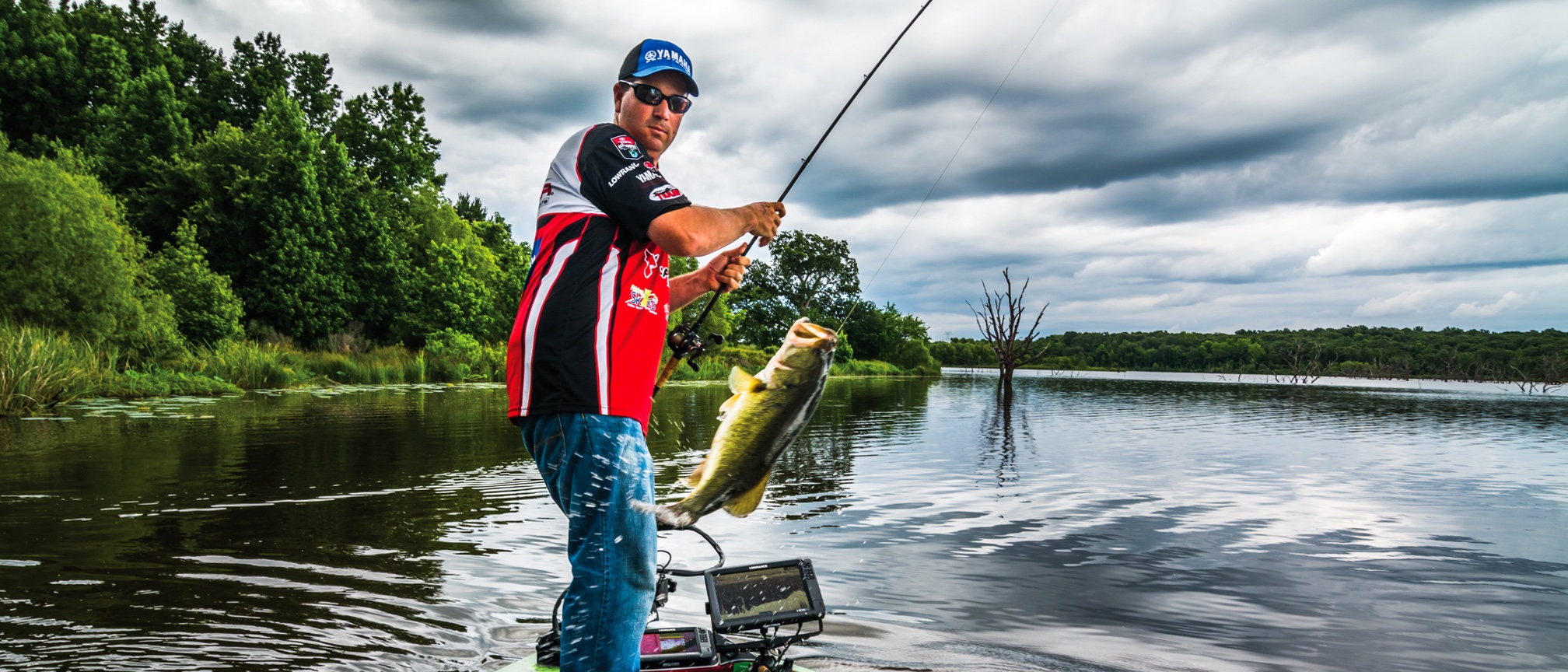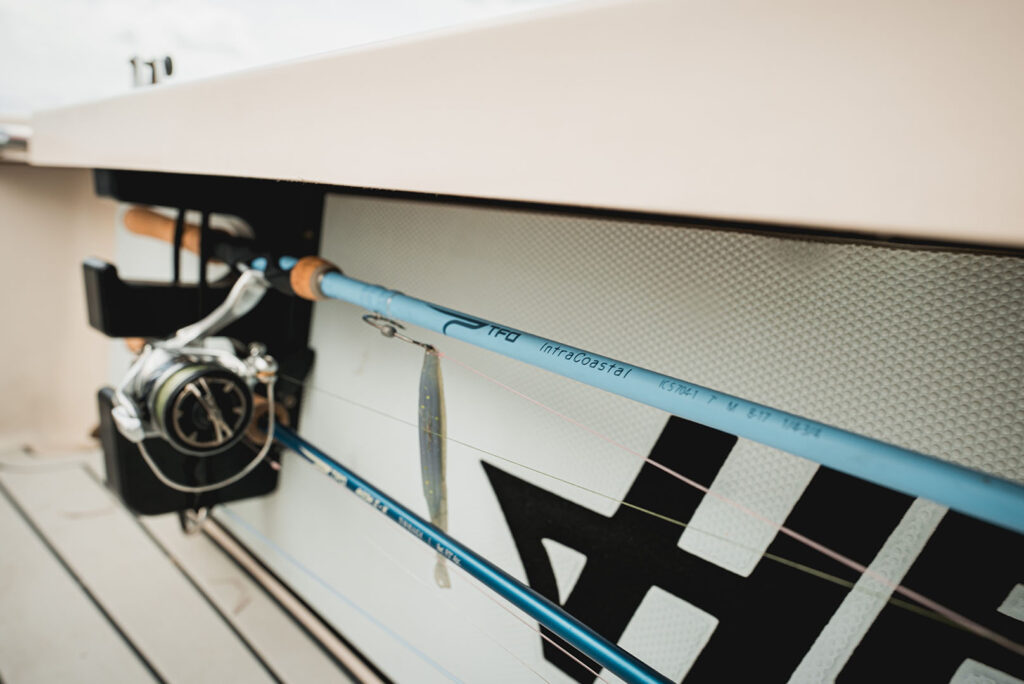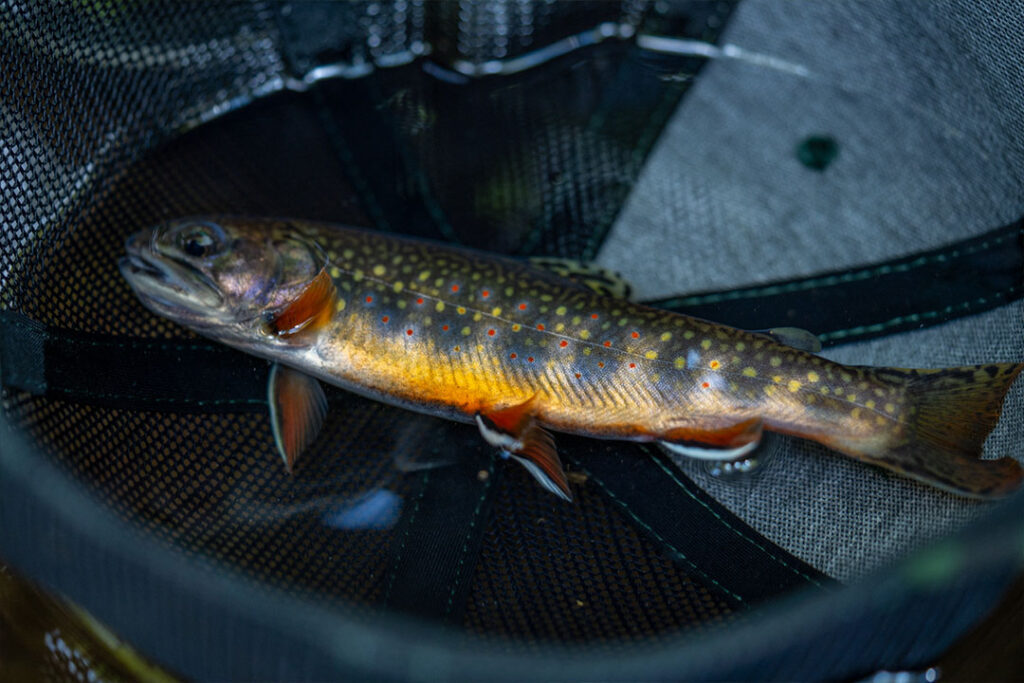Cliff Pace is one of the best bass fishermen in the world. The Petal, Miss. resident has banked more than $1 million in career earnings and logged 25 top 10 finishes during his 15-year professional run. The 2013 Bassmaster Classic champion recently took a few minutes away from his busy schedule to chat with TFO blog editor Mike Hodge. Here’s what Pace, a TFO national advisory staffer, had to say during part one of a two-part interview.
TFO: What are your earliest memories of fishing as a kid?
CP: “I really feel like I lived a very fortunate childhood in the sense that I did get to spend a lot of my childhood in the outdoors. I had a dad who loved to fish, as well as friends of the family and uncles, people of that nature, who loved to fish as well. I really truly don’t remember fishing being a part of my life. … I grew up fishing with my dad and friends of my dad all up and down the Mississippi Gulf Coast. And we did a lot of different types of fishing. I grew up bass fishing, but I also did a lot of inshore saltwater fishing, so I was exposed to a lot of things (in the outdoors) at a very young age, and that continued throughout my entire life.”
TFO: When did you realize you wanted to be a pro fisherman?
CP: “For some reason it always struck me. I remember watching the Bassmasters on TV with the commentators years ago. It was on TNN. That was the Nashville network. Not even sure if that’s on or not anymore. I was always drawn to that being a career choice. That was before collegiate fishing tournaments and high school fishing tournaments. I grew up prior to that. For me, it was something I was drawn to do at a very, very young age. It was something that I always wanted to do. My parents thought I was crazy thinking that I would be able to make a living fishing. Somehow, through the grace of God, it’s all worked out.”
TFO: Was there one point in your pro career that you realized, ‘Hey, I can make a living doing this?’ I know there has to be a learning curve in the process? I know that’s got to be fairly steep because you’re going up against some pretty good competition, right?
CP: It is (steep). I was very fortunate in my fishing career that I managed, somehow, to win one of the first big tournaments that I fished. It was always something that I really wanted to do, but it’s also something that you never really know if it’s all going to work out. I just took the approach to work hard at it diligently. I still have that same approach now that I did then. Once I got out there and kind of got my feet on the ground competing in the tournaments against guys who were making a living doing it, I felt like it was something like I could for sure accomplish. I really devoted myself to trying to do so. Over time, I started fishing more and more events, I got more comfortable to where I am today. The struggle is the same now as it was then. That’s the thing about any competitive sport, you are never at a comfort point when it comes to the competition side of things. Our competition is better now than it’s ever been in our sport, because of some of the things I mentioned — the addition of high school fishing and collegiate fishing. People are fishing (competitively) at younger ages than they ever did before. People are taking it more seriously and looking at as a career choice and option, and therefore you have people who are getting better faster, which makes for a stronger competition field. I expect that field to get stronger throughout my career.”
TFO: Who was your mentor? Was there someone you tried to model yourself after?
CP: “I had a lot of guys who helped or coached me. I wouldn’t call it coaching. I had a lot of guys I could discuss things with and guys who helped me feel comfortable with what I was doing and gave me a sense that I could be successful with it. I was fortunate to meet Gary Klein and Mark Davis who helped me with things that I didn’t have answers to. Sometimes they didn’t either, things that you’re asking (about the learning curve). When it comes to the fishing side of it, typically you’re kind of on your own with that. It’s like a pitcher in baseball. He’s got to go out and throw the ball. You kind of have to take care of that on your own. I really think that with this sport or any other sport, that if you focus your time and effort on to that. … People ask me, ‘What’s the best way to get sponsored?’ Sponsors, yes, are a big part of making a living doing this. If you just take care of the fishing, the rest will take care of itself.”
TFO: That said, if someone wanted to take pro fishing as a career path, what advice would you give them? To focus on the fishing?
CP: “That would be my advice. And to put themselves out there and build a name for themselves. That’s what sponsorship is all about. Step one is being a person that sponsors would want to look at.
TFO: What’s your favorite way to catch bass? I know as a pro you have to be versatile, but what’s your preferred method when you get an opportunity to fish?
CP: “My favorite way to catch a bass is however they’re biting.”
Be sure to check in next week as we conclude our two-part Q&A with Cliff Pace!
In the meantime, you can checkout our Cliff-designed series of bass rods, the Pacemaker!
